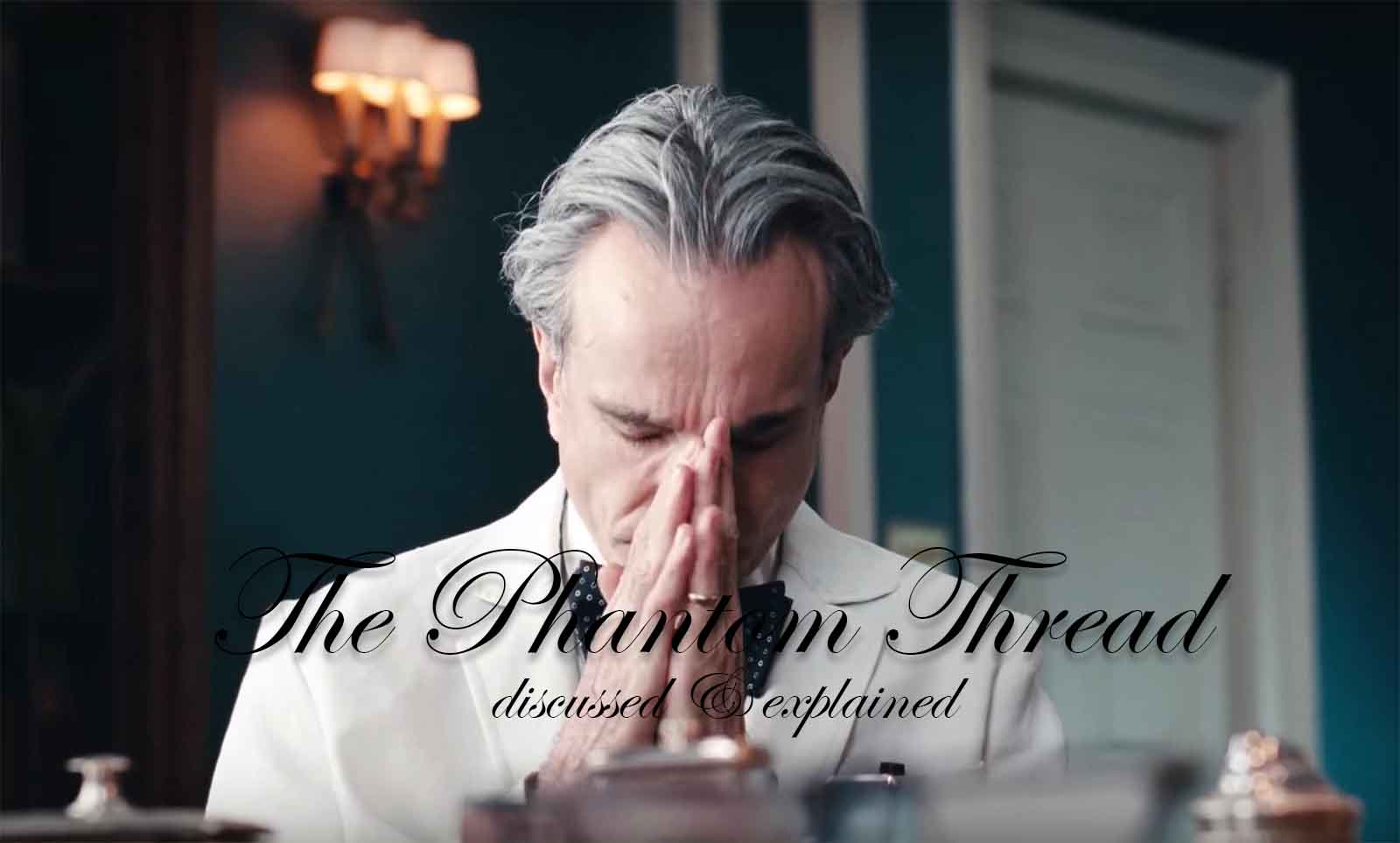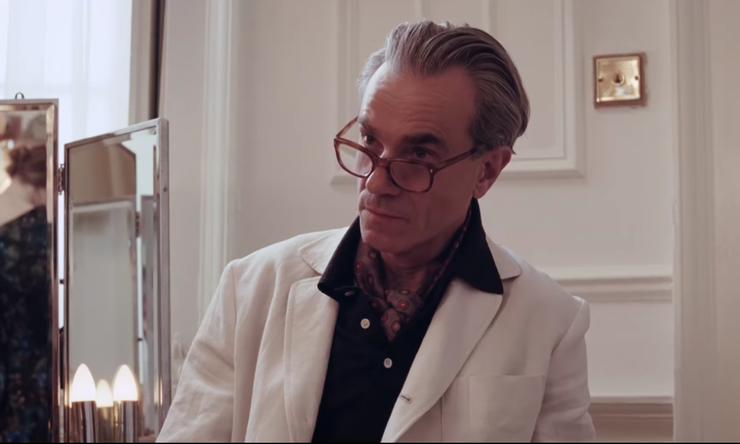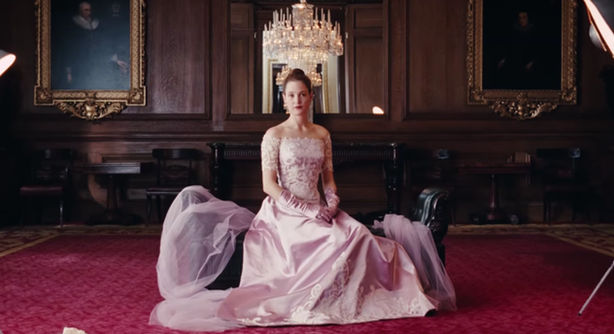Gotta start with a disclaimer. The Phantom Thread is definitely not going to be for everyone. Not by a long shot. And actually, if you even have a hint that you might not dig it, I all but guarantee you that you won’t. Personally though, I went from disliking it, Lewis and his Woodcock character, to DISDAINING the lot of it, to loving it, to adoring it. I literally have never had a move grow and change and morph on me mid-viewing like The Phantom Thread did. So maybe you should take a peek at this trailer, and then decide if it’s your thing or not.
Daniel Day Lewis isn’t Your Average Bear
But before I dive into this particular movie, I have to reflect backwards a bit. Daniel Day Lewis is an amazing actor in my mind. But no single role of his will ever outstrip his larger than life role in Last of the Mohicans. I think I was in high school when that hit the theaters, and I’m pretty sure I snuck in to see it through the back door of the theater. And from beginning to end I was gob-smacked. I loved everything about that movie. So as I dive in and talk about this movie please understand, I am a pretty big fan-boy of Lewis’ work. And I was even more blown away by There Will Be Blood. PT Anderson partnered with Lewis in that movie, and he joined ranks with Lewis one last time to bring us The Phantom Thread, so you know something untoward is probably about to happen.
Quick Phantom Thread Walkthrough
I actually went to see this movie on a lark. I really didn’t know much about it. I knew it was supposedly about some fashion scion from the 50’s. I knew it was most likely Lewis’ last performance. And I knew that it was going to be melancholic at best. I hadn’t seen the trailer. I didn’t know anything about the plot beyond dresses would be involved. And as I’m a guy, (not to be sexist or anything) the thought of watching Daniel Day Lewis stitching and designing dresses all movie long seemed horrifying. But it was a slow movie week, so I relented.
The barebones of the story are simple enough. Lewis plays Reynolds Woodcock, an apparently well-to-do fashion expert that dresses movie stars, society’s elites, and royals. P. T. Anderson actually patterned his portrait of the fictional Woodcock after Cristóbal Balenciaga. A man that Christian Dior referred to as ‘the master of us all’, who was considered the pinnacle of global couture.
Woodcock is the unrelenting coxswain and genius for his own fashion-house. His extraordinarily close business partner is that of his sister, Cyril. The two work almost embarassingly close on almost every single detail, including when Reynolds is done with his latest found model. And as the movie starts they are letting the latest girl go. Woodcock dodges the controversy and heads out to the country. And in so doing he stumbles upon a waitress that was to be his latest obsession, Alma. Soon she is whisked away into a world of riches, sumptuous surroundings and daily sessions with the stern and dogmatic Woodcock. The honeymoon is quickly over though, and we begin to learn just how awful a human being Woodcock really is.
Reynolds and Alma phase in and out of cycle with one another so quickly and so regularly that we think that they may very well be the perfect poster-child for the definition of passive aggressive relationships everywhere. Soon Alma learns her place, and does her absolute best to fall in line. But over time Alma finds her own ways to gain her own respect and power within this high stakes relationship. And soon she realizes that after a show Woodcock is so depleted that he is in desperate need for her assistance and help. Realizing just how much she desires this reimagining of her relationship with Woodcock that she poisons Woodcock with poisonous mushrooms in the meal she makes for him.
The poisoning is extreme and so intense that Reynolds accidentally ruins the wedding dress for a Royal and witnesses his mother’s ghost in his room. But Alma so enjoys babying him after the fact that she thinks maybe she could just do it again. And as the movie comes to its climax she offers to make Woodcock breakfast, and poisons his omelette. But Reynolds guesses what Alma’s game is and what she is up to. And in a bizarre twist, Alma explains what it is that she was doing and just how badly she needed him to be weak and thus the poisoning attempt. Which, basically blows Woodcock’s mind… and he ultimately agrees… and eats the omelette. The two get married and they find a new symbiosis of shifting equivalences and a shifting circling of detentes and co-dependencies.
But What Is The Phantom Thread About?
Theory 1 – Maybe It’s About Power & Creative Control
As the movie started, I assumed that the movie was 100% about the demanding nature necessary to truly create and to be successful in the art world. That it was impossible to be reasonable and to also be a perfectionist. That families and demands of one’s time are completely unacceptable for those that live in the upper reaches of the castles in the clouds. That it was impossible to truly be happy while also being an artist. And that there was nothing worse than individuals that interrupt the pursuit of excellence. Which, I think is rubbish – and that Woodcock was being a complete ass, for utterly no reason whatsoever. So personally? I don’t think that theory #1 is even close to on target.
Theory 2 – Is It About Ghosts and Curses?
First things first, we have to begin this theory with the title of the movie. What does it even mean? The Phantom Thread? Phantoms, ghosts, curses? Then we have to discuss those secret messages that Woodcock was sewing into his dresses. For example, we see Alma find a message Woodcock had sewn into the hem of a wedding gown commissioned by a princess. The message, a blessing, was “Never Cursed”. And then there is the one last detail we have to detail out to complete our evidence, the apparition visitation of Woodcock’s mother in his room. Could it just be the mushrooms talking? Sure, but it could also be a single thread running through this entire movie, a phantom one. No? If you buy into this theory, then you believe that there is a magical quality to this movie. That it is a movie about curses and blessings. It’s a movie about conjurings and about magic, its a movie about secret talismans. No? Be careful, I might curse you by sneaking in a secret message somewhere in this post! hahah. (Don’t think I would, I have already, you just haven’t found it! First to find my message gets a Starbucks coffee on me.)
Theory 3 – Toxic Masculinity and an Example of #MeToo
Tossing aside the artistic angle entirely, I began wondering if the timing of the Phantom Thread was just too perfect. Was the movie actually a commentary on the late breaking #MeToo movement? An indictment of men in society, and their embarrassing will to power? Could it be a polemic against how men have been given status and position as an assumption of skill? Maybe it was a discussion of how women are regularly subjigated and belittled in a million different ways that add up to a death via a billion different paper-cuts? We know for a fact that Alma is all but sadistically humiliated and belittled in front of not only the family but also the larger fashion world with such regularity that one wonders if it was something of a sport for Woodcock. Maybe this is simply a lense to show us just how horrible we men can be to other women and co-workers in spite of their capabilities or skills. (Unfortunately, this theory is way more on target than I’d like it to be.)
Theory 4 – Physical Power And Sickness As Control
But as the movie progressed, and the relationships changed, and the pendulum shifted, I realized it wasn’t about that at all. I happened to notice an interview with Rolling Stone and Anderson a couple of days ago that actually helped me turn this movie on its head in my understanding of what was actually happening. In said interview, Anderson spoke of being sick once, and how lovingly his wife cared for him. And during his convalescence he said he had this thought, “Oh, she is looking at me with such care and tenderness… wouldn’t it suit her to keep me sick in this state?” And just like that, Anderson realized that there was a physical component to the shifting tides of power in a long running relationship. That it isn’t exclusively mental, but also physical. And out of that, came the muse of an idea that sprung forth this movie.
What Is Your Idea About The Phantom Thread?
I don’t know. Could it be that the movie investigates the complexity of relationships and the different types and kinds of weddings of the mind that are possible? Maybe we are seeing Alma stand her ground and give Woodcock exactly what he was hoping for ultimately, exactly what he thought he’d never find. Which was someone that knew when to push back and when too let go. A relationship that allowed him the need and the desire to be supported and also controlling of simultaneously.
I don’t know – what did you think of the movie? Did you see any sense to it at all? I’m guessing that there are going to be a lot of guys venting about how utterly stupid this movie was. How incomprehensible. And how meaningless. But I would be very careful, my fellow brethren, as to how you respond! hahaha. Sure, this movie isn’t for everyone. And yes, there is a ton of mental gameplay here. Almost a Dangerous Liaison type of a mental gymnastics sort of a movie. Actually reminds me of My Cousin Rachel in some respects. (I mean, the mushrooms being the most obvious comparison, but mentally too.) And that is why I enjoyed it so much, and mainly because it wasn’t about couture at all. It wasn’t about dresses. It was about something completely other. But what other? What do YOU think it was about?






